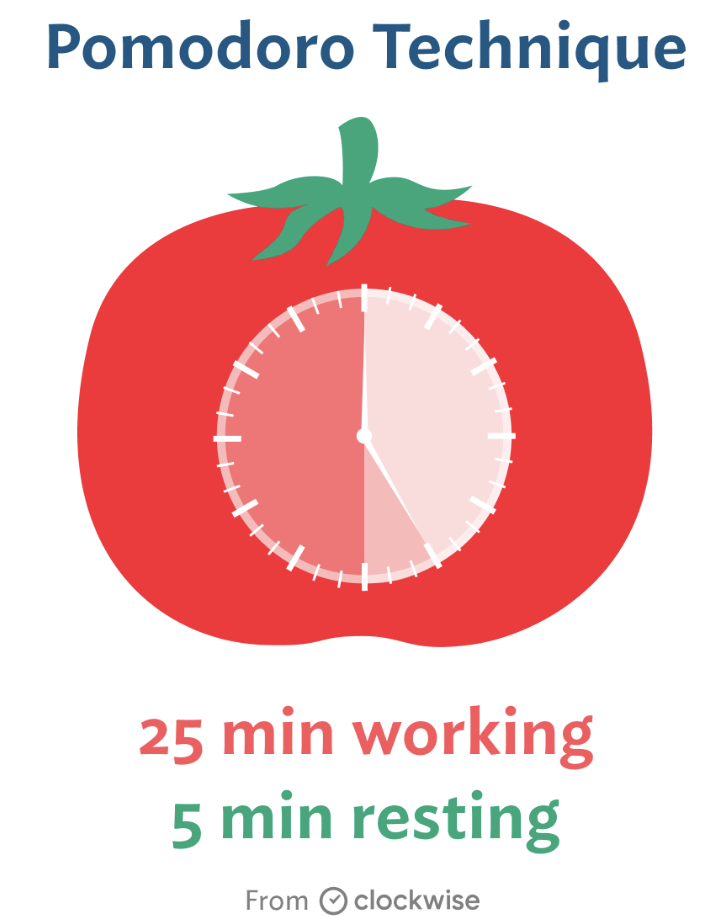How to Study for an Exam: 15 Exam Study Tips for Your Child
As a student, exams are a critical but can be a stressful and overwhelming time. While a lot of content is taught and revised in class, very rarely are students taught how to study for an exam. Often students skip this step completely, or don’t know how to use their time effectively. This can lead to regrettable results and student dissatisfaction. In order to ace their tests, it is essential students are aware of the different tips and strategies on how to study for an exam. We’ve put together 15 of our best exam study tips to help your child get an ‘A’ on their test.

1. Plan Ahead
Preparing for an exam should begin as soon as the content is introduced. Ensuring students have all the note-taking materials they require is a must. Notes should be taken every time new material is covered in class. This allows for not only a reduction in stress but eliminates the need as a student to be cramming the content the night before the exam. Note-taking supports your brain in making connections and transfer vital information from the short term memory to the long term memory.
Being organised and having a study schedule in place is integral. Once the teacher has announced when the exam is occurring, this is a good time to begin planning when to study. Consistent and quality study of already prepared notes again aids the transfer of information from the short term memory to the long term memory.
2. Organize a Study Area
When considering ‘how to study for an exam’, a study area is a vital resource. A consistent and distraction free zone is a must. Organize a prepared and clean study area. A clear space can enable a clear mind, ready for quality and effective study.
When preparing this area, think about finding or creating a comfortable environment that works for the student. Ask yourself as a student, what might you need? Snacks, water and music may be study tools that are effective for your concentration.
Having an organised and well-prepared study area is essential to being in the study zone. The right mindset is also heavily influential in leading to the successful study. Start by learning how to get into the study mindset.
3. Avoid All Study Distractions
Eliminate all possible distractions. This may be turning down the TV in the other room, people chatting, or just having a phone nearby. Make sure your child has distraction free study sessions by asking your child to let your family know when they are going to study, and having them turn off their phone and devices onto to flight mode – better yet, put them out of sight. Although multitasking is heavily tempting, remind them to be strong and let their brain stay focused on one thing – study.
Although music is a popular tool used when studying, this claim can be misleading and does not pertain to every student. Some music can aid study, although music can be distracting for some students, and it needs to be the right type of music.
4. Take Regular Study Breaks
As a student, the combination of juggling studying, home, social, and work life can lead to burn out. It is important for your child to preserve concentration and avoid mental fatigue.
An effective study method, designed to detract from student burn out is the Pomodoro method. This includes a 25 minute focused study session — with 5-minute breaks, repeated in cycles.
This will help your child eliminate the likely occurrence of interruptions and have a set goal to achieve in the 25 minutes.It is important that your child is mindful of working past the point of optimal productivity or being overly optimistic when it comes to how much they can get done in a single study session.
5. Stay Active
While studying, the body may be resting, but the mind is working for long periods of time. It is essential that after these long periods of sitting, your child exercises and moves their body. This will lead to improved focus and will utilise other areas of their brain. Consider encouraging scheduling frequent exercise when creating their study plan. It is also important that during quick study breaks, your child stand up, stretch their legs, and move their body.
6. Nurture Healthy Eating (and Drinking) Habits
Food and water is fuel for the body. In order to reach optimal productivity and concentration, your child’s food and water are integral resources.
Make sure your child is eating nutrient rich foods, including the recommended fruit, vegetable, and protein servings. Frequent eating and healthy snacks will help your child maintain healthy energy levels during study. Hydration is also a must and leads to positive study outcomes such as memory retention. A great tip for your child is to always have snacks and water on hand while studying.
7. Have a Good Night’s Sleep
Sleep is integral on your child’s general well-being and brain function, not to mention the obvious – energy levels. When studying it’s important they not compromise on sleep for study. This is ineffective and will likely lead to poor memory retention.
Consider the importance of sleep early on, have them try to plan a set rest and wake time each day and keep it consistent. Their concentration, energy levels and general well-being will thank them. Without these integral factors study and high results are almost impossible.
8. Discover Your Learning Style
Consider different methods of learning while studying, and what works personally or your child. Knowing what works for your learner is integral in successful study and aceing their exams. If your child is aware of what learning style they use this it will aid them in finding the most successful ways to study. There are three main learning styles. Discover your child’s learning style by using the STAR Program or talking it over with them!
9. Join a Study Group
Have your child consider studying in a group! Working with others can encourage the group to stay on task and creates a motivating environment. Another positive to group study sessions is having someone else to ask questions.
10. Use Old Exams to Practice
Study is the revision of previously learnt content. But after the exam, this content is usually built upon. This means your child has completed past work and exams that cover related content.
You may want to suggest to your child that they use old exams as practice resources. Not only will this jog their memory, but it will reenact the exam procedure. Use their success on the re-completion of old exams to motivate and encourage their ability. This way they are familiar with the exam process and have sparked the memory of stored content they require.
11. Ask Your Teacher/Tutor for Help
Like all learning, when your child is learning how to study for an exam, it is okay to ask for help.
Remind your child not be afraid to ask a question if they’re unsure. Without filling in missing information and clarifying topics, it becomes really difficult to succeed.
Studying doesn’t have to be a lonely journey, there are many resources designed to aid in your child’s success, such as a teacher or tutor. A great way to improve their grades is to work with someone, such as our tutors that can help your child determine their strengths, weaknesses, interests, and learning language, which in turn helps develop their very own personalised program designed to help them learn “how to study for an exam” and ace it!.
12. Test Yourself
The best way to measure your child’s success in learning, knowing, understanding and applying the content is to have them test themselves.
Have them gather the required content for the exam and test their knowledge. Perhaps, encourage they use a traffic light system to rate their confidence and ability on those particular topics. This way they can identify areas of success and improvement in time and preparation for their upcoming exam.
13. Use Flashcards
An easy, reusable and successful method of self testing is flash cards. Not only is their usage as a study method proven successful, the time taken to create this resource aids in revision of content. Flashcards are simple and cost effective to create and can be used in both a study group or individually. This method of self testing prepares students to be able to test the extent of their knowledge and answer a content question without prompt.
You can also get involved by offering to use flashcards with your child and see how they are going with revision for the exam!
14. Use Diagrams and Flowcharts
For visual learners, creating a visual study aid could be very successful for learning. These could include creating diagrams and flowcharts. Suggest that your child organise topics in a visually appealing and memorable way for them and use different colours and font to spark memory.
15. Pay Attention in Class
Paying attention in class is one of the most important lessons in learning how to study for an exam. Preparing for an exam should begin as soon as the content is introduced. Therefore, ensuring your child know the importance of pay attention in class at all times is a must. This is because notes should be taken every time new material is covered in class. The last thing your child would want is any unexpected questions on the exam. This allows for not only a reduction in stress but eliminates the need for your child to be cramming the content the night before the exam. Consistent and quality study of already prepared notes again aids the transfer of information from the short term memory to the long term memory.
Need a Helping Hand With Passing an Exam?
Like all learning, learning how to study for an exam takes resilience, consistency, and patience. Tell your child it is okay to ask for help, and don’t be afraid to ask a question if they’re unsure.
Remember, using these tips in combination are the best way to get good exam grades and study of an exam. This can look like asking a teacher for help, forming a study group, or working with a private tutor.
If your child is looking to learn how to study for their next exam, A Team Tuition is here to help. With our tried and true tutoring and mentoring methods, we can help you excel at your exams with our at-home and online tutoring. Find an Academic Personal Trainer near you today!

